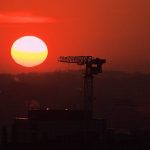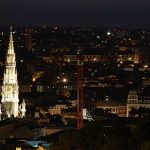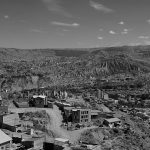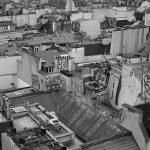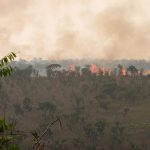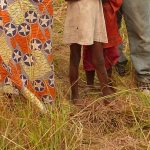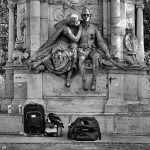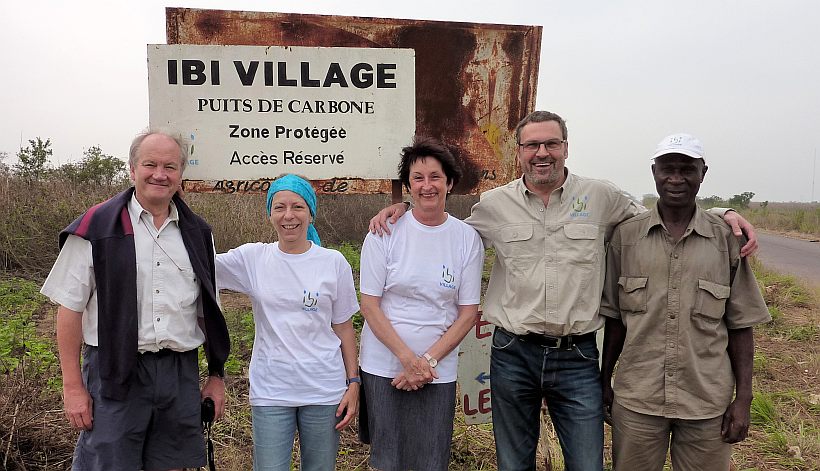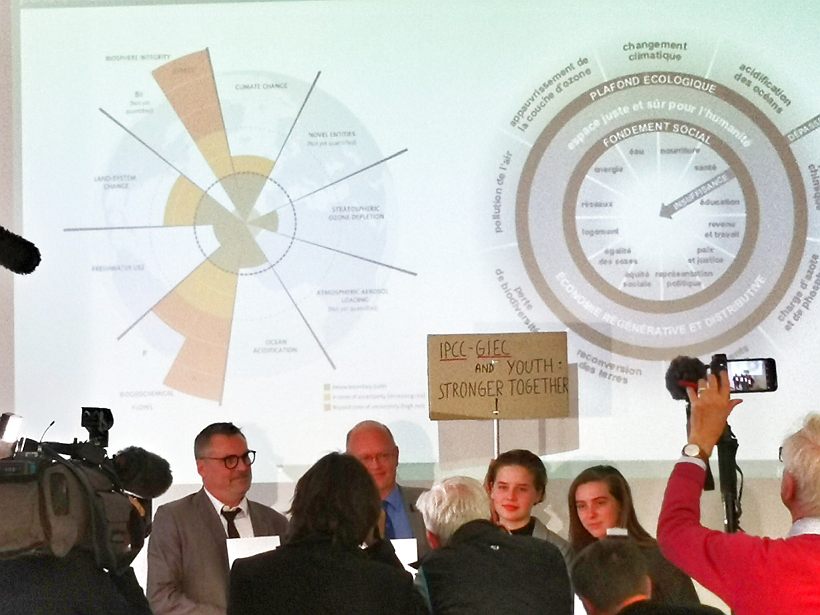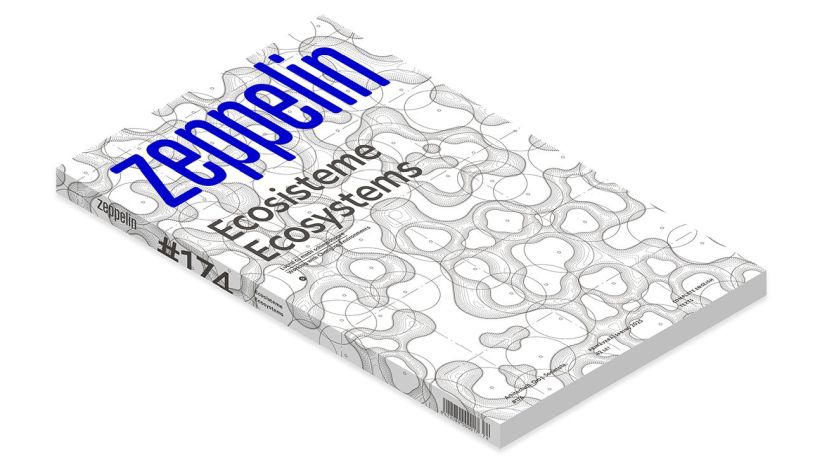Text: Oana Bogdan
Photo: Leo Van Broeck
As countries hurry to exit the pandemic lockdown, the discussions are focused on the choice between health and wealth. My point is that we don’t have to choose. Our health and the one of the planet we inhabit is our wealth. We could plot this exit starting from the cause of the pandemic: the way humans use land. This is the illness of Earth, this is what triggered COVID-19. Life-support systems need space, but we, humans, occupy too much of it (75% of land, on this planet), build too much (32% of land is built up) and consume too fast too many of Earth’s resources. We lost so much of Earth’s biodiversity that we risk the stability of the planet, today and for all future generations. So all we have to do is project our presence on Earth in a different way. No more greenfield developments should be allowed. The mobility should be mainly non-car based. The transfer of development rights as a tool to coagulate sprawled rural fabric and relocate housing in well connected cities, towns and villages should be possible. Natural areas with reduced accessibility (‘human free space’) should be introduced on all planning levels. The accent from CO2 emissions should be transferred to land use with the highest priority. Optimizing land use requires all political domains to be streamlined and coordinated. It requires the full cooperation between society, communities, politics, economy and technical expertise. Our economy should shift from quantitative growth to qualitative growth.
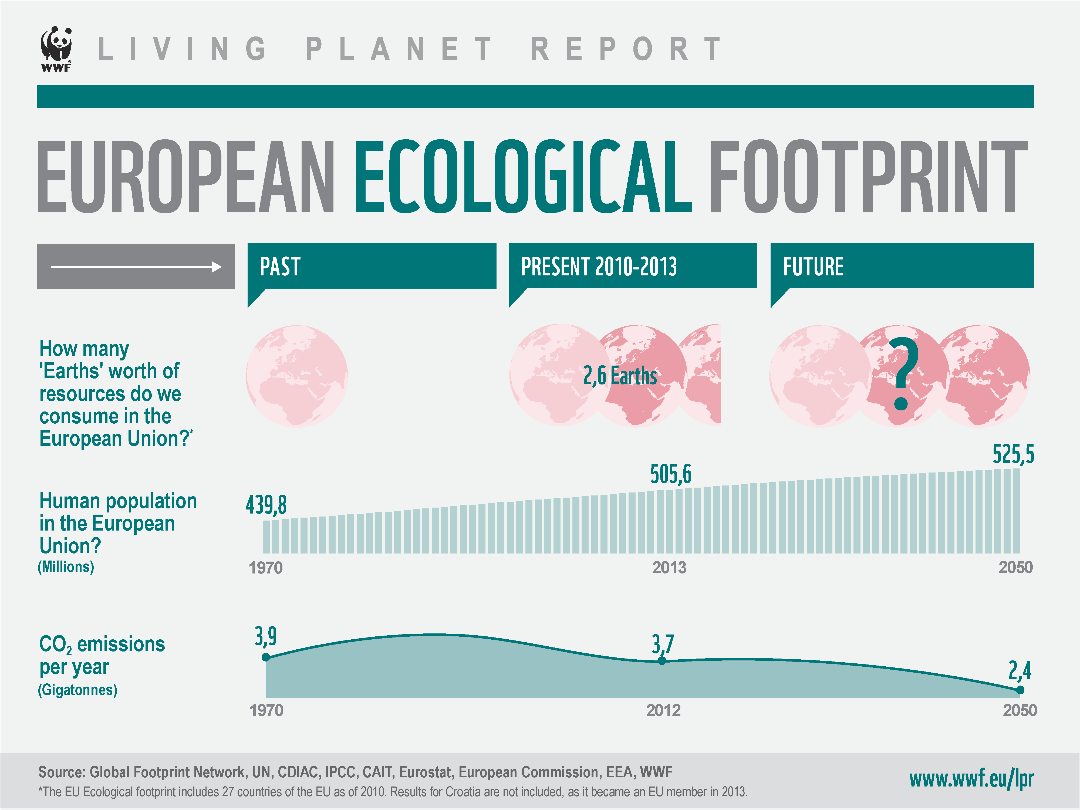 © WWF
© WWF
At the beginning of this year, due to my experience in a technocratic government in Romania, I was invited by the Belgian TV station VRT to discuss the possibility of one for Belgium, after eight months of unfruitful negotiations between the political parties. When the question of the political decisions making process was asked – do you go left or right? – I answered that mankind is confronted with such challenges, that there will be only one way to go. “We are already confronted with the climate crisis and soon with a pandemic.”, I added.
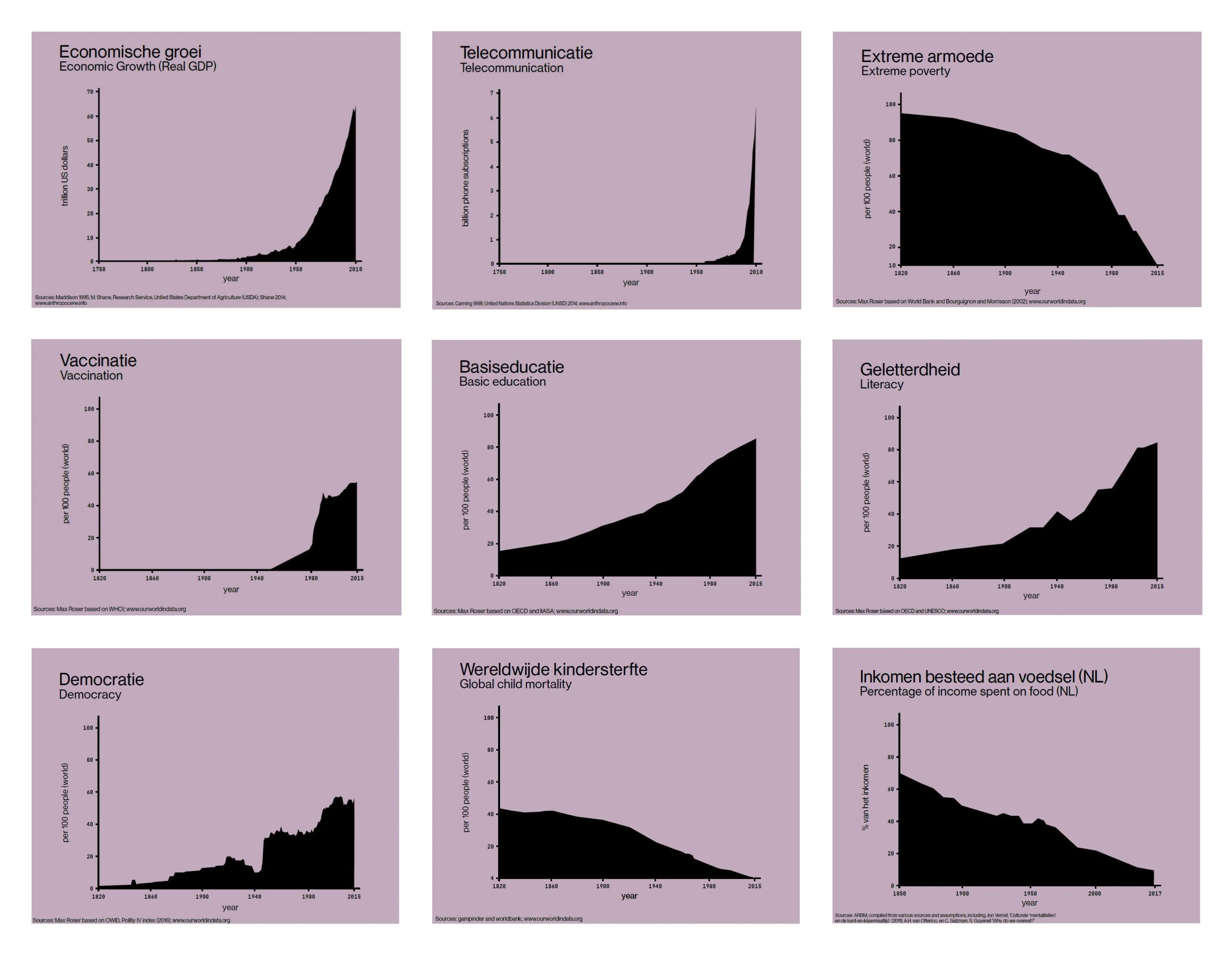 *mankind: (still) better & better
*mankind: (still) better & better
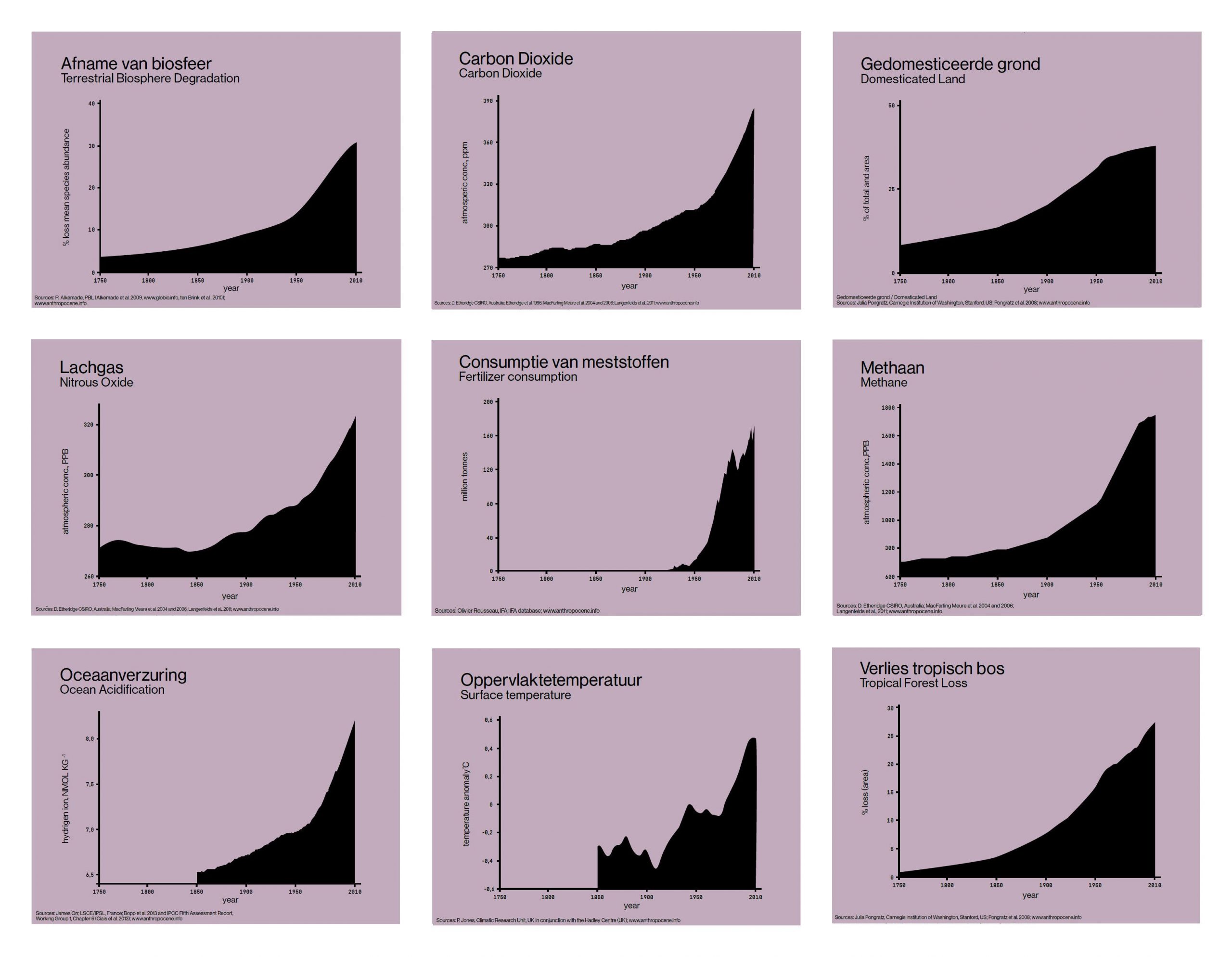 *…and that is exactly why nature went as badly as ever
*…and that is exactly why nature went as badly as ever
As soon as the pandemic hit Belgium, a temporary, crisis government was formed. Not a technocratic one, but one that listens to experts and, recently, to a “Resilience Management Group” consisting of academics, economists and transition entrepreneurs who reconcile reflection and practical experience. Leo Van Broeck, an architect who happens to be my associate [smile], is one of the members of this group.
Leo and I founded BOGDAN & VAN BROECK in 2007 having in our minds the idea of solidarity on a global level. “That solidarity born out of hope for a common future that offers new possibilities for mankind to fulfill its needs and aspirations while improving the condition of the planet”, it is written on our website. Through the challenges encountered and overcome, we have learned over time to be anti-fragile. Antifragility is beyond resilience. The resilient resists shocks and stays the same. The antifragile gets better. So today, more than ever, everything we have been saying, writing, designing and building is capitalized by Leo in the plan for the transition to a sustainable and just society.
*Leo Van Broeck în IBI Village- a large ecological project of 22 000 hectares in Democratic Republic of Congo, details here: bogdanvanbroeck.com/projects/manzo-ibi-village-ibi-village-d-r-congo
The “Resilience Management Group” is currently working on a dynamic that allows us to overcome this crisis in such a way that we derive benefits from it. This sounds antifragile to me [smile]. I have translated and interpreted their basic vision in five paragraphs. A series of concrete measures that are in line with this vision will be communicated shortly.
1. A systemic and global response, which restores our bond with nature, repositions the human species and reconnects it to natural ecosystems. There is a link between pandemics and a more global and structural phenomenon, the effects of which are only beginning to emerge. The dominant globalized system, based on infinite material growth in a finite world, depletes natural resources and causes pollution that seriously affects the oceans, the soil and our atmosphere and all living things that depend on it. Water, land and air are seriously threatened. Mankind’s ecological footprint is twice as large as the planet’s capacity and is very unevenly distributed between the different countries and strata of the population. In other words, mankind lives on credit at the expense of future generations. The planet suffocates under the weight of current production and consumption modes. Together with her, we start to suffocate as well, and this in a very uneven way: the system punishes low-income households and people living in poverty much more severely, at all latitudes.
2. A new economy: inclusive, cooperative, circular. The health crisis changes our behavior and makes us seriously question the rationality and significance of current consumption and production patterns. The impact of climate change on health is much greater than that of COVID-19. But because it is a phenomenon that we do not perceive directly, we fail to adjust our behavior collectively. The intention is to ensure the rapid and necessary transition to another economy: inclusive, cooperative, circular. An economy that operates within the limits of the planet and respects values other than competition and obsession for the lowest price. Faced with an irreparable threat, we are able to change our behavior, so let us do that for the climate, biodiversity and all the resources that are simply indispensable for the survival of the Belgians and all the world’s populations. Without forgetting the most vulnerable, victims of the economic downturn. In other words, the social and ecological boundaries must be respected in the economic recovery plan. The conceptual framework of the “donut economy” sets an ecological upper limit and a social lower limit between which a healthy economy can develop. This framework therefore encourages us to limit what is detrimental to society’s development while accelerating investment and job creation in the sustainable and forward-looking sectors.
3. International agreements for sustainable development. Governments have approved international agreements (including the United Nations Framework Convention on Climate Change, the Convention on Biodiversity and the Convention on Combating Desertification) and the 17 Sustainable Development Goals (SDGs). Together, these SDGs are, inseparably, the objectives that all Member States committed in 2015 to fully implement by 2030. Since December 2019, the European Union has had a coherent strategy (the Green Deal) that “reconciles the economy and the planet … and ensures that no one is left behind.” The various business support measures are an opportunity to accelerate the transition to a regenerative economy. To this end, this aid must fulfill a number of conditions, from ending all fossil fuel subsidies and converting them into renewable energy sources to an EU tax on the profits of large companies (at a variable rate adapted to their carbon footprint).
4. Strong and visionary governments supported by the participative governance. The government must return to its legitimate role, which has become too limited compared to that of a market that focuses too much on immediate private interest and too little on the collective future. This weakness has had disastrous consequences: the increase in inequalities and the difficulty of long-term planning, which should be corrected by making politicians and administrations more accountable, supported by multidisciplinary scientific advice and consultation with stakeholders. High transparency and review of the institutions and strengthening of participatory democracy are needed.
5. A pact for shared wealth and social security. Next to a guaranteed income, a strengthened social security and a prioritized financing and protection of essential goods and services (quality jobs, food, energy and water, health, etc.), reducing inequality (on which society is actually built) through participation to women and men in government and capital seems vital to me. Humanity will no longer be divided between those who work and those who hold capital, between sellers and buyers. We will all be shareholders, users and providers at the same time.
In conclusion, what seemed impossible during last year’s turbulent climate debates is self-evident today: listen to science, build your policy on it, protect the population and the future. I would like to see many architects involved in all the interdisciplinary groups advising the governments of this world. COVID-19 shows us that everything is connected. And that we are facing extinction. We thought we could control nature, but we do not have that power. The reduction of humanity’s ecological footprint is the foundation of our health and, implicitly, of our well-being. That is why we need a new narrative, one that is not dedicated to the destruction of the planet, but to its recovery. So let’s make space. Let’s step aside. In compact and productive cities, but full of green spaces and ecological corridors. “We need designers at every turn, but they are so infrequently consulted”, say front-line doctors these days. The whole planet needs architects to help treat its disease, which is also the cause of the pandemic that keeps us in lockdown: the way people use the land.
*Leo Van Broeck at the press conference at the launch of the Report for Climate and Sustainable Development on 14 mai 2019 in Brussels. The conclusion of the report was that systemic changes are necessary and urgent in order to cope with the climate crisis and the crisis of the ecosystem. (klimaatpanel.be/fr & .klimaatpanel.be/nl)
Related article:
If we architects really want to change the city, we have to….



